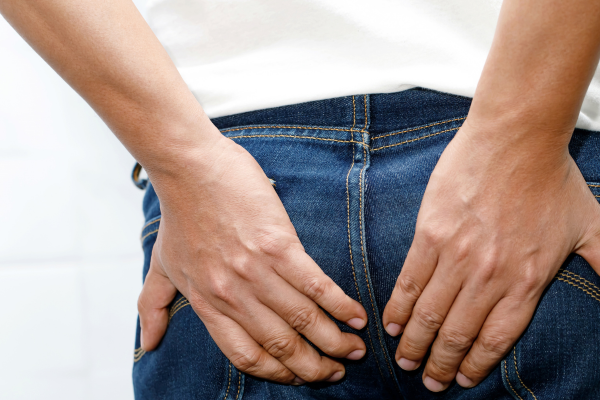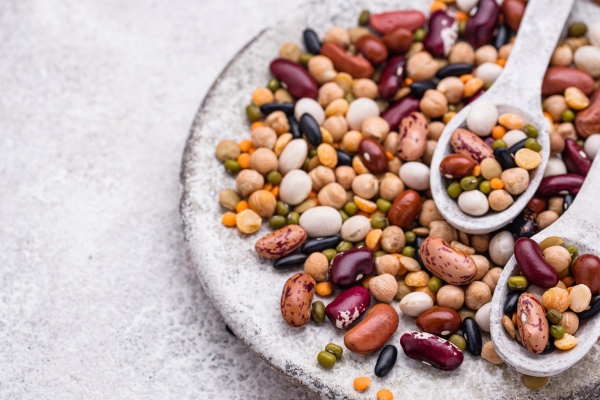Hemorrhoids, Gut Health, and Collagen

The Connection Between Hemorrhoids, Gut Health, and Collagen: An In-Depth Review
Hemorrhoids are a common and often painful condition that affects many people. They occur when the veins in the area around the anus or lower rectum become swollen and inflamed, leading to pain, itching and sometimes bleeding. It is a condition that significantly affects quality of life and can be caused by a variety of factors, including prolonged constipation, pregnancy, obesity and a sedentary lifestyle.
Gut health and collagen play a crucial role in the development and prevention of hemorrhoids. Bowel function and the structural integrity of the tissues around the anus are crucial in preventing hemorrhoids from occurring or becoming severe. Collagen, which is a structural protein in the body, has a direct impact on the strength and elasticity of tissues, and therefore collagen may affect the risk of developing hemorrhoids.
In this article, we examine the connection between hemorrhoids, gut health, and collagen and how these factors come together to influence hemorrhoid prevention and treatment.
What are hemorrhoids?
Hemorrhoids are swollen and inflamed blood vessels found in and around the anus or lower rectum. They can be caused by increased pressure on the veins in these areas, which can cause them to swell and become irritated. Hemorrhoids can be divided into two main types:
-
Internal hemorrhoids : These are located in the inner part of the rectum and can be harder to detect. They can cause bleeding, but they often do not cause pain.
-
External hemorrhoids : These develop under the skin around the anus and usually cause pain, swelling, and sometimes bleeding, especially if they become thrombosed (if blood clots form in the veins).
Common causes of hemorrhoids include:
-
Prolonged constipation : Having to strain hard during toilet visits increases pressure on the veins in the anus and rectum, causing hemorrhoids to develop.
-
Pregnancy : The increased strain on the pelvic area and hormonal changes during pregnancy can lead to hemorrhoids.
-
Sedentary lifestyle and obesity : Lack of physical activity and being overweight can increase pressure on blood vessels and contribute to hemorrhoids.
-
Aging : With age, tissues can lose their elasticity, which can cause the veins in the anal area to swell more easily.
Bowel health and hemorrhoids
Bowel health is one of the most crucial factors in preventing and managing hemorrhoids. Good bowel function, especially in the form of regular and easy bowel movements, can reduce the risk of developing hemorrhoids. When the bowel is functioning optimally, and we have regular and soft stools, the risk of having to strain during bowel movements is reduced, which reduces pressure on the veins in the anus and rectum.
A high-fiber diet is essential for keeping your intestines in good shape and preventing constipation. Fiber helps to make stools softer and easier to pass. Foods rich in fiber, such as fruits, vegetables, whole grains, and legumes, are important for keeping your intestines functioning properly. Fiber also helps maintain a healthy bacterial flora in your intestines, which is a key factor in digestion and overall gut health.
Hydration also plays an important role in bowel health. Drinking enough water softens stool and makes it easier to pass, reducing the need to strain when going to the bathroom. Dehydration can cause dehydration of the bowel, leading to constipation, which is one of the biggest risk factors for hemorrhoids.
Collagen and Tissue Strength
Collagen is the most abundant protein in the body and is found in skin, cartilage, bones, tendons and blood vessels. It acts as a structural building block that gives tissues strength and elasticity. Collagen's role in maintaining tissue integrity is crucial for both the firmness of the skin and the walls of the intestines.
Collagen is particularly important in the context of hemorrhoids because it helps maintain the strength and elasticity of blood vessels. The veins around the anus and in the rectum must be able to expand to accommodate blood, but they must also be able to return to their original shape after the pressure is relieved. If collagen production decreases, which can occur with age or with certain diseases, the blood vessels can become weaker and more prone to swelling, increasing the risk of developing hemorrhoids.
Collagen also plays an important role in the healing process. When hemorrhoids cause damage to the blood vessels or skin, collagen can help repair that damage and promote healing. This means that collagen is not only a preventative factor but also an important part of treating existing hemorrhoids.
The Connection Between Collagen and Hemorrhoids
Research has shown that collagen plays a role in the development and treatment of hemorrhoids. When collagen production decreases, especially with age or due to certain lifestyle factors, blood vessels become weaker and more likely to become stretched and inflamed. This increases the risk of hemorrhoids.
One of the most prominent functions of collagen in the context of hemorrhoids is its role in maintaining the integrity of blood vessels. A strong collagen layer allows the veins to withstand pressure without rupturing or becoming inflamed. When collagen production decreases, the veins in the anus and rectum can become more vulnerable to damage and swelling.
To prevent and relieve hemorrhoids, it is important to support collagen production. This can be done by including collagen-rich foods in the diet, such as bone broth, as well as foods that support the body's own collagen production, such as vitamin C-rich vegetables (such as citrus fruits and peppers) and foods containing amino acids such as glycine and proline (found in animal products).
Collagen and Hemorrhoid Healing : For people who already suffer from hemorrhoids, collagen may play a role in speeding up the healing process. When hemorrhoids cause damage to the blood vessels or tissues around the anus, collagen can help strengthen these tissues and speed up healing.
Lifestyle factors and gut health
To improve both gut health and collagen production, it’s important to focus on lifestyle factors that can promote these functions. Here are some tips:
-
Eat a high-fiber diet : Fiber from vegetables, fruits, and whole grains is essential for keeping your intestines functioning properly and preventing constipation, which can cause hemorrhoids.
-
Drink enough water : Keeping your bowels hydrated helps make stools softer and easier to pass, reducing pressure on the veins in the anus.
-
Exercise regularly : Regular physical activity improves blood circulation and helps prevent obesity, a risk factor for hemorrhoids.
-
Include collagen in your diet : Foods like bone broth, chicken skin, fish, and eggs can help strengthen tissues and blood vessels around the anus.
-
Avoid prolonged sitting : Prolonged sitting can increase pressure on the anal area and contribute to the development of hemorrhoids.
Conclusion
Hemorrhoids are a common and troublesome condition that is often caused by constipation, pregnancy, a sedentary lifestyle, or obesity. Gut health, collagen production, and lifestyle factors all play important roles in the prevention and treatment of hemorrhoids. By promoting good gut health with a high-fiber diet, adequate fluids, and regular exercise, as well as by supporting collagen production, the risk of hemorrhoids can be reduced and the healing process can be improved. Understanding the relationship between these factors can provide both preventative and palliative measures to manage and prevent hemorrhoids.






